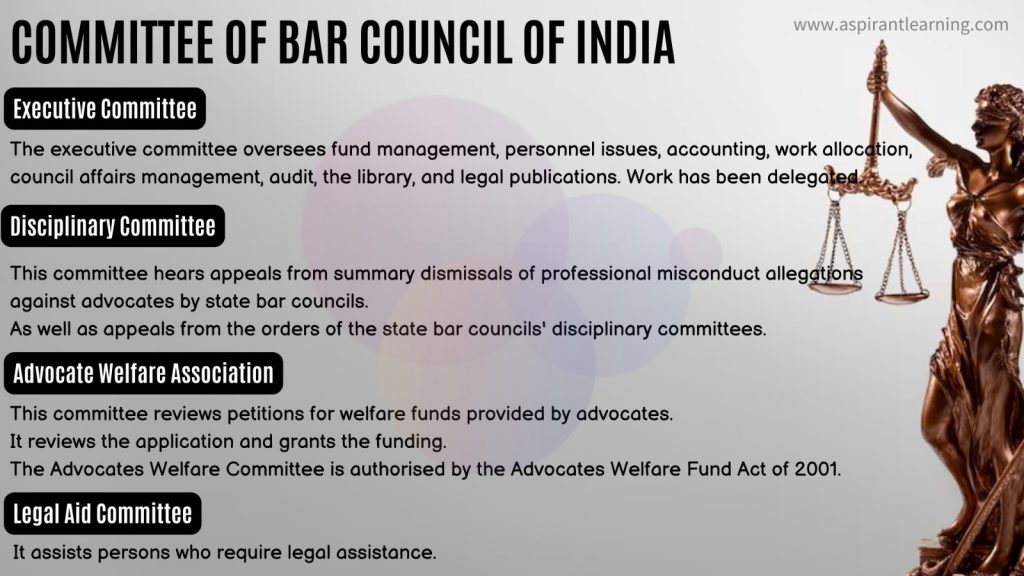News Highlight
The Rules allowing the registration of foreign lawyers and firms with BCI will make India a hub for international commercial arbitration.
Key Takeaway
- The Bar Council of India (BCI) has opened a law practice to foreign lawyers and law firms in India.
- The Guidelines permitting foreign lawyers and firms to register with the BCI will turn India into a hub for international commercial arbitration.
- In addition, concerns concerning FDI flow into the country must be addressed.
How can foreign lawyers begin operating in India?
- The Regulations state that foreign lawyers and firms are prohibited from practising law in India unless registered with the BCI.
- Foreign lawyers and law firms are not permitted to practise Indian law in any capacity or before any court of law, tribunal, board, or other legal entity with the jurisdiction to record testimony under oath.
- However, the prohibition does not apply to law practice by a foreign lawyer or law firm on a “fly in and fly out” basis.
- Additionally, it is to advise a client in India on foreign law or international legal concerns.
- In this instance, the barrister may not have an office in India and may not practice for more than 60 days in any 12-month period.
Requirements for foreign lawyers and firms
- A primary qualification required from foreign lawyers and firms is;
- A certificate from their country’s competent authority states they are authorised to practise law there.
- Undertaking not to practice Indian law in any form or before any court of law, tribunal, board, or other legal authority with authority to record evidence under oath.
Bar Council Of India (BCI)
- About
- The Advocates Act 1961 established the Bar Council of India as a legislative entity.
- In addition, it regulates by establishing professional conduct and etiquette norms and exercising disciplinary authority over the bar.
- It also establishes requirements for legal education and recognises universities whose law degrees will be accepted as qualifications for enrolling as an advocate.
- Statutory Provisions
- Firstly, Parliament formed the Indian Bar Council as a statutory body to regulate and represent the Indian legal profession.
- Section 4 of the Advocates Act established it in 1961.
- It governs the bar by defining professional conduct and etiquette standards and exercising disciplinary authority over its members.
- Involved Ministry: The Bar Council of India is overseen by the Ministry of Law and Justice.
- Every Bar Council so constituted shall be a corporate body having perpetual succession and a common seal.
- In addition, it has the power to acquire and hold movable and immovable property and to contract.
- And shall by the name of the Bar Council of the High Court for which it has been constituted sue and be sued.
- Furthermore, meetings are held regularly to guarantee the smooth operation of the BCI.
- Composition
- Each Bar Council shall elect a Chairman and Vice-Chairman in the manner stipulated by law.
- Furthermore, Ex officio members are the Attorney General of India and the Solicitor General of India.
Functions of the Bar Council Of India
- To create norms for advocates’ professional conduct and decorum.
- To provide a framework for its disciplinary committee and the disciplinary committees of each state bar council.
- To safeguard the rights, privileges, and interests of advocates.
- To promote and aid in the reform of the legal system.
- To deal with and resolve any situation referred to by the State Bar Council.
- To promote legal education and set standards for legal education.
- This is done with Indian legal education universities and state bar bodies.
- To acknowledge universities that provide a legal degree as a condition for becoming an advocate.
- The Indian Bar Council inspects and visits universities or directs state bar councils to do so.
- Famous jurists will hold seminars and talks on legal topics, and journals and papers on legal topics will be published.
- To organise legal aid for the needy.
- Acknowledge foreign legal qualifications obtained outside of India for the purpose of reciprocal admission as an advocate in India.
- To administer and invest the finances of the Bar Council.
- To provide arrangements for the election of individuals to lead Bar Councils.

Conclusion
- According to the BCI, the ruling will benefit Indian lawyers, whose legal expertise is on par with the rest of the globe.
- According to the notification, The legal profession in India is not likely to experience any disadvantage in case law practice.
- It is opened to foreign lawyers in a limited, well-controlled, and regulated manner on the principle of reciprocity, as it would benefit lawyers from India and abroad.
- These Rules are an attempt by the Bar Council of India in this direction.
- The Rules would establish India as a centre for international commercial arbitration.
- Furthermore, they will aid in addressing concerns about the flow of foreign direct investment into the country.
Pic Courtesy: freepik
Content Source: The Hindu



